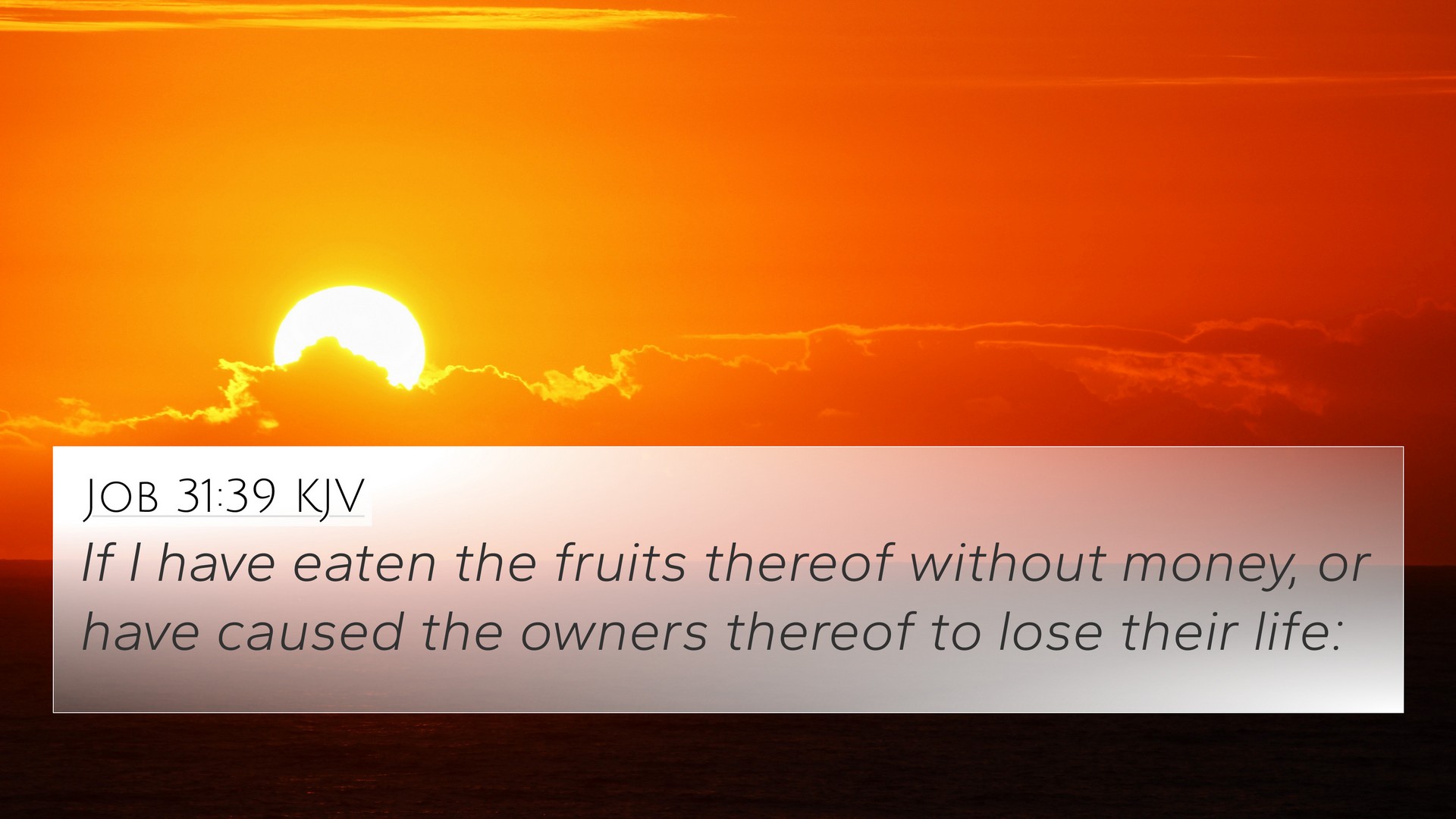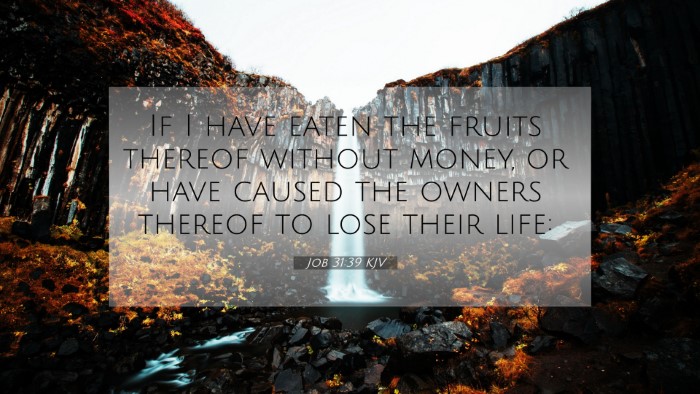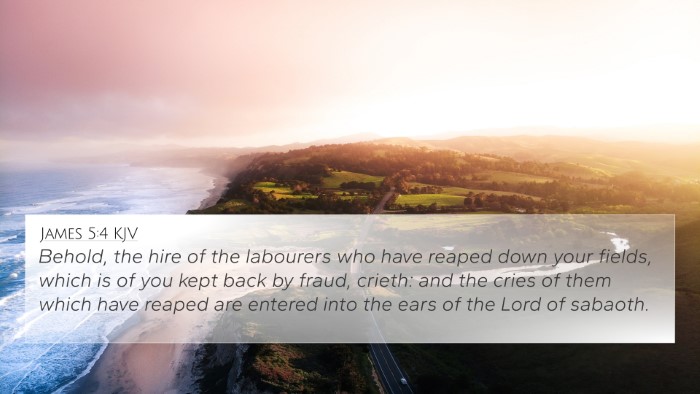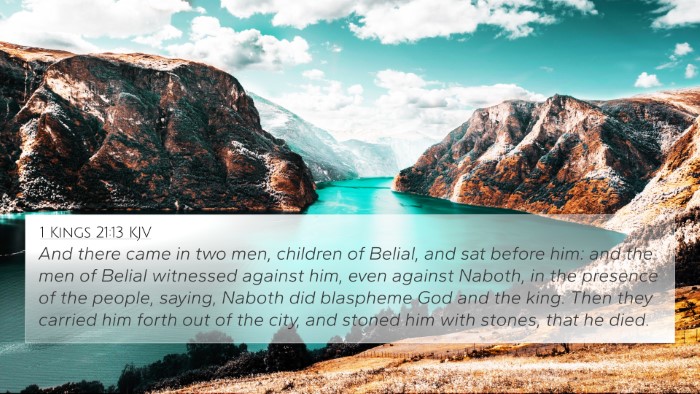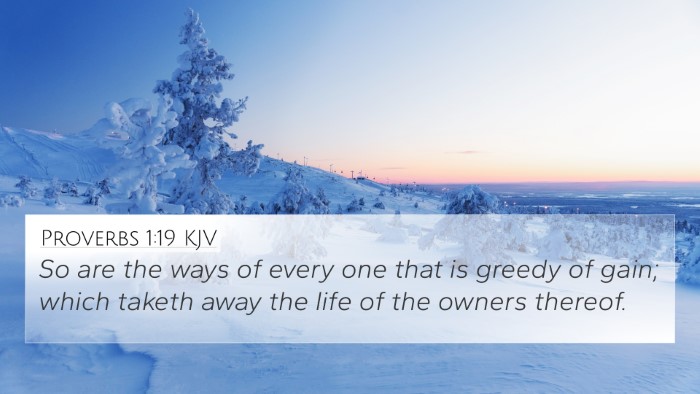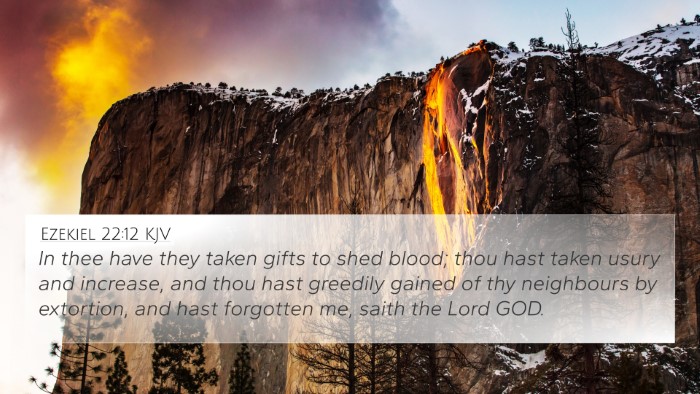Understanding Job 31:39
Job 31:39 states: “If I have eaten the fruits thereof without money, or have caused the owners thereof to lose their life.” This verse is part of Job's final defense, where he asserts his integrity and righteousness amidst the accusations of his friends.
Contextual Background
This verse is set in the larger narrative of Job's response to the calamities he has faced. Job maintains that he has lived justly and has not taken advantage of others. He insists that he has been honest in all his dealings and has treated others with fairness, underscoring a deep sense of moral obligation.
Commentary Insights
-
Matthew Henry’s Commentary:
Henry emphasizes Job's plea of innocence regarding issues of material gain and justice. He highlights how Job’s concern was not merely for his possessions but also for the rights and dignity of others. He argues that taking from others unjustly, particularly the poor, would violate Job's sense of ethics.
-
Albert Barnes’ Notes:
Barnes elaborates on the significance of 'eating the fruits' in this context. He interprets this as a metaphor for benefitting from the labor of others without compensation, suggesting an ethical violation. Barnes explains that Job is asserting his character by claiming he has not engaged in such wrongdoing, thus holding to his integrity.
-
Adam Clarke’s Commentary:
Clarke points out the weight of Job’s accusation against himself if he were found guilty. He notes that Job places a high value on ethical conduct, and he lives under the principle that one cannot take without giving due recompense or respect to those who labor. Clarke emphasizes that this aligns with the larger biblical theme of justice and fairness.
Thematic Connections
The themes in Job 31:39 resonate with numerous biblical concepts, such as integrity, justice, and the treatment of others. To further explore these themes, one can consider the following related scripture:
- Proverbs 14:31: "Whoever oppresses a poor man insults his Maker, but he who is generous to the needy honors him."
- Exodus 22:21-24: Outlines God's command for justice towards the poorer members of society, warning against oppressing them.
- James 5:4: "Behold, the wages of the laborers who mowed your fields, which you kept back by fraud, cry out…" highlighting the importance of fair compensation.
- Luke 3:14: John the Baptist teaches ethical taxation and fair dealings as a matter of righteousness.
- Micah 6:8: "To do justice, and to love kindness, and to walk humbly with your God." This verse encapsulates Job's sentiments flawlessly.
- 1 Timothy 5:18: "For the Scripture says, 'You shall not muzzle an ox when it treads out the grain,' and, 'The laborer deserves his wages.'" This teaches the principle of fair rewards.
- Zechariah 7:10: "Do not oppress the widow, the fatherless, the sojourner, or the poor…" again reiterating God's stance on justice.
Cross-Referencing Biblical Texts
This verse also opens the door for cross-referencing several other related biblical texts, showing the vast interconnectedness within scripture regarding justice and moral living.
Example Cross-References:
- Job 29:12-17 - Job discusses how he helped the needy and defended the helpless.
- Psalm 37:21 - "The wicked borrows but does not pay back, but the righteous is generous and gives."
- Proverbs 21:13 - "Whoever closes his ear to the cry of the poor will himself call out and not be answered."
- Luke 16:19-31 - The parable of the rich man and Lazarus, discussing wealth and poverty.
- Romans 13:7 - "Pay to all what is owed to them; taxes to whom taxes are due..." emphasizes respect for obligations.
- Matthew 25:40 - "As you did it to one of the least of these my brothers, you did it to me," framing moral treatment of others as a duty to God.
Conclusion
Overall, Job 31:39 serves as a critical reminder of the importance of integrity, fairness, and the moral implications of our actions towards others. Through the insights garnered from established commentaries and scriptural parallels, we can better appreciate the depth of this verse.
